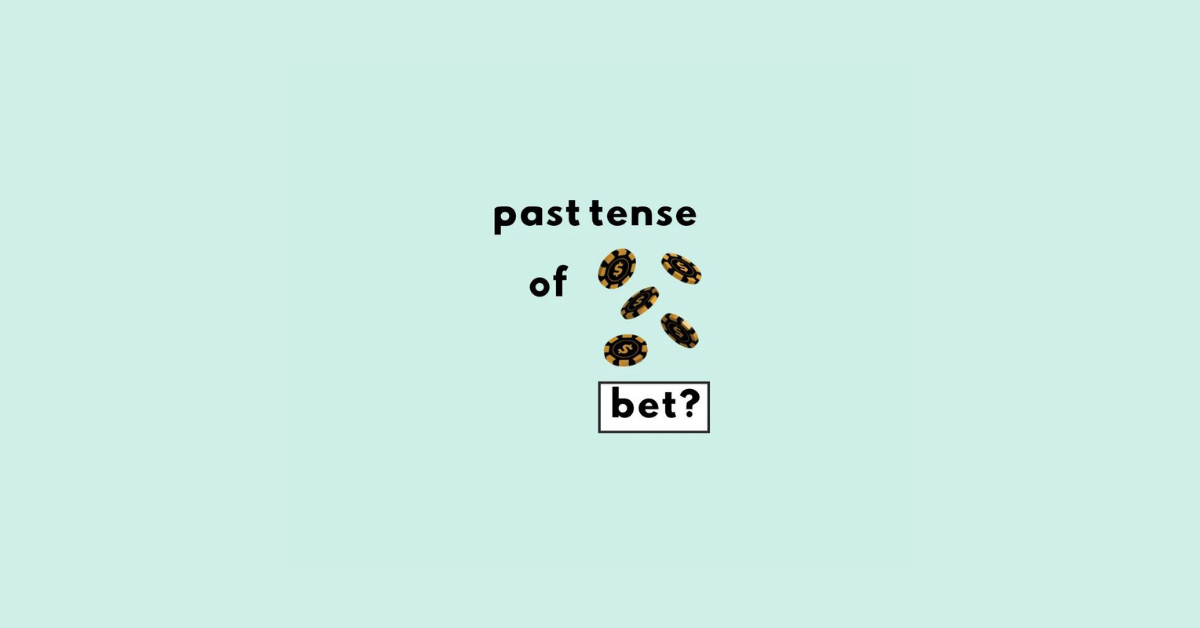Past Tense of Bet
The past tense of the verb “bet” is “bet.” In English, unlike many other verbs, “bet” remains the same in both present and past tenses. This means that whether you are talking about something happening now or in the past, you would still use “bet.”
For example, if in the present tense you say, “I bet you can’t guess the answer,” the past tense version would be, “I bet you couldn’t guess the answer.” The simplicity of the past tense form of “bet” can make it easy to use in conversation without the need to remember a different form.
Definition of Bet
To “bet” is a verb that means to gamble or wager money on the outcome of a particular event or situation. It is a common form of entertainment and can involve predicting the result of sports games, races, or other competitive activities. When someone bets, they are putting their money at risk in the hopes of winning more in return.
Betting can also be used in a more informal sense, such as making a prediction or taking a chance on something uncertain. People may “bet” on things like whether it will rain tomorrow or who will win an upcoming election. Overall, betting involves a level of risk and uncertainty, with the potential for both gains and losses depending on the outcome.
Regular Verb Conjugation
For regular verbs, forming the past tense is typically straightforward. Most regular verbs simply require adding ‘ed’ to the base form of the verb. For instance, the past tense of the verb ‘walk’ is ‘walked,’ while ‘play’ becomes ‘played.’ These verbs follow a consistent pattern, making them relatively easy to conjugate in the past tense.
Verb conjugation in the past tense with regular verbs is common in daily conversations. Whether in writing or speaking, using the correct past tense form contributes to clear communication. By understanding and practicing regular verb conjugation, individuals can enhance their language skills and effectively express actions that occurred in the past.
Irregular Verb Conjugation
Irregular verb conjugation can be a bit tricky in English grammar. Unlike regular verbs that follow a predictable pattern when changing tenses, irregular verbs have their own set of rules to follow. One common example is the verb “go,” which changes to “went” in the past tense.
Another irregular verb is “eat,” which changes to “ate” in the past tense. These irregular verbs do not follow the typical -ed ending like regular verbs do. Instead, they have unique forms that need to be memorized. It’s important to study these irregular verbs and practice using them in sentences to become comfortable with their conjugations.
Examples of Past Tense Usage
The past tense of the verb “bet” is “bet.” For instance, “She bet on the winning horse in the race last weekend.” In this sentence, “bet” shows an action that occurred in the past.
Another example of using the past tense of “bet” is: “They bet each other that they couldn’t finish the challenge, but they both succeeded.” Here, the word “bet” indicates an action that already happened, emphasizing the completion of the wager.















